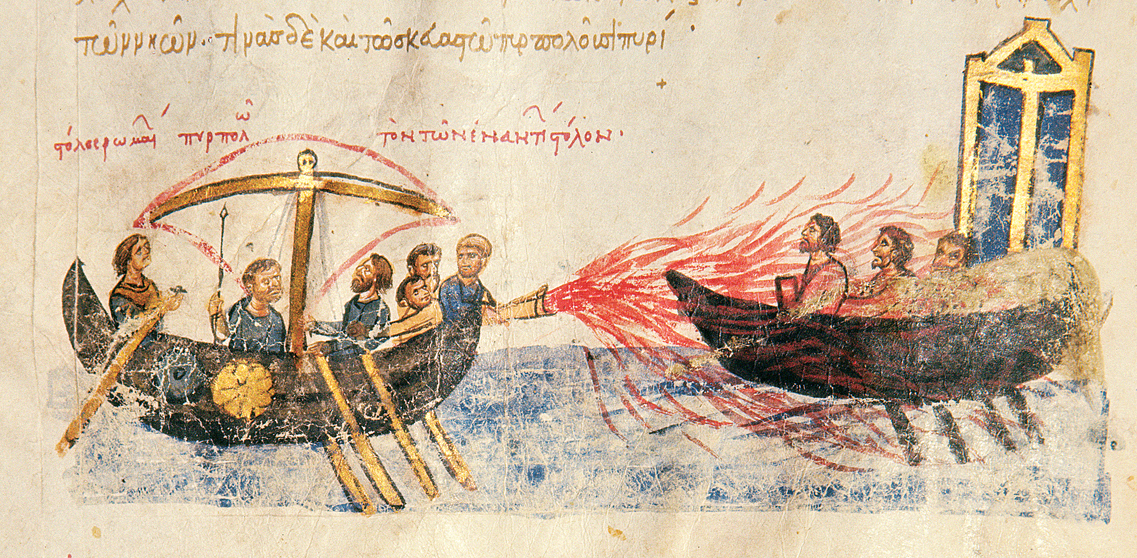A History of World Societies:
Printed Page 211
A History of World Societies Value
Edition: Printed Page 206
Byzantine Intellectual Life
Just as they valued the law, the Byzantines prized education. As a result, many masterpieces of ancient Greek literature survived to influence the intellectual life of the modern world. The literature of the Byzantine Empire was predominantly Greek, although politicians, scholars, and lawyers also spoke and wrote Latin. Among members of the large reading public, history was a favorite subject.
The most remarkable Byzantine historian was Procopius (ca. 500–
Although the Byzantines discovered little that was new in mathematics and geometry, they made advances in military applications. For example, they invented an explosive liquid that came to be known as “Greek fire.” The liquid was heated and propelled by a pump through a bronze tube, and as the jet left the tube, it was ignited — somewhat like a modern flamethrower. Greek fire saved Constantinople from Arab assault in 678 and was used in both land and sea battles for centuries, although modern military experts still do not know the exact nature of the compound.

The Byzantines devoted a great deal of attention to medicine, and their general level of medical competence was far higher than that of western Europeans. Yet their physicians could not cope with the terrible disease, often called “the Justinian plague,” that swept through the Byzantine Empire and parts of western Europe between 542 and 560. (See “Viewpoints 7.2: Coping with Epidemics in Japan and Byzantium.”) Probably originating in northwestern India and carried to the Mediterranean region by ships, the disease was similar to the bubonic plague. Characterized by high fevers, chills, delirium, and enlarged lymph nodes, or by inflammation of the lungs that caused hemorrhages of black blood, the plague killed tens of thousands of people. The epidemic had profound political as well as social consequences. It weakened Justinian’s military resources, thus hampering his efforts to restore unity to the Mediterranean world.